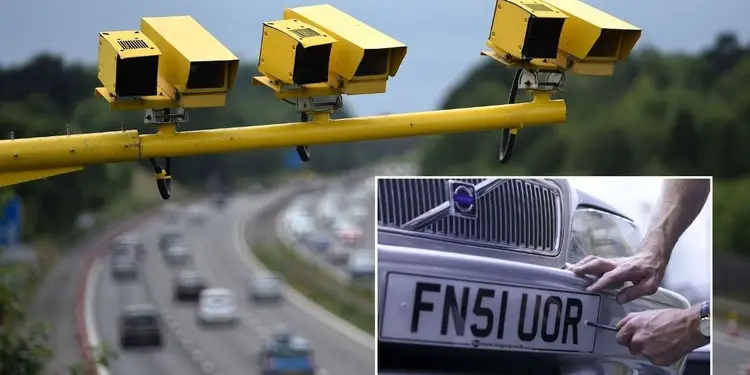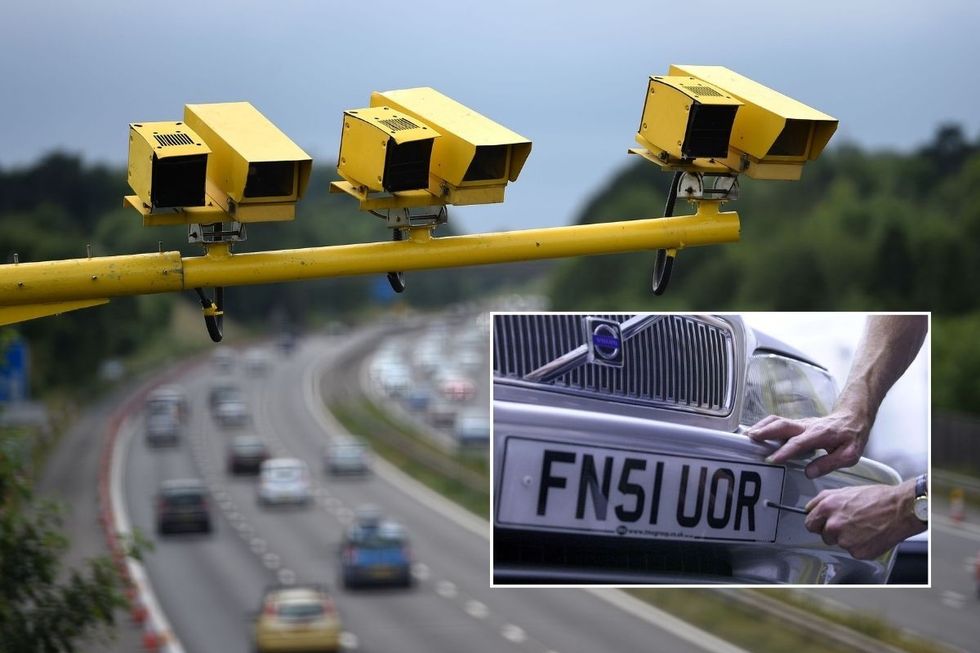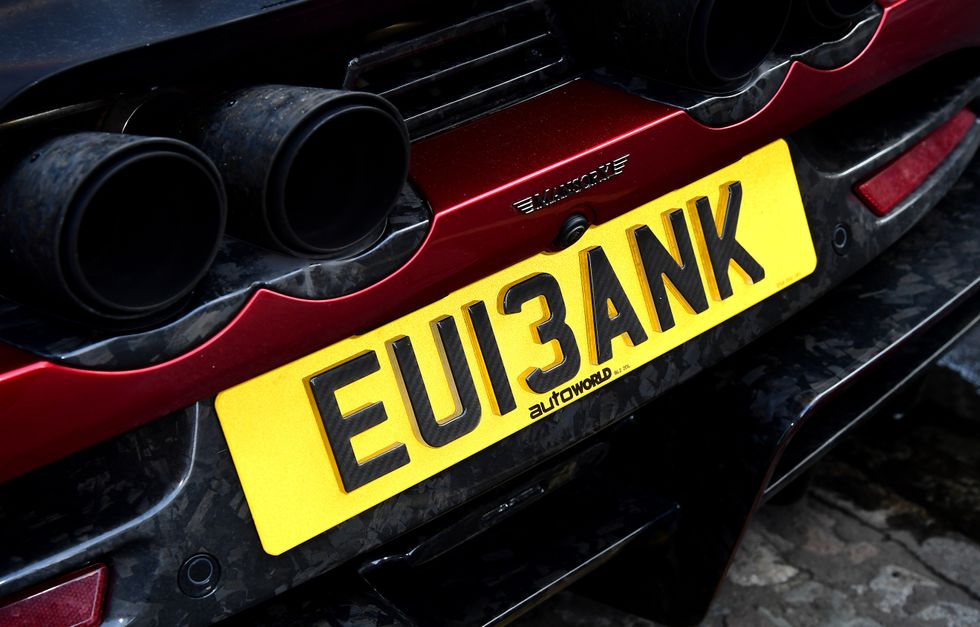Drivers issued number plate warning amid rollout of new speed cameras to issue fines

Authorities have raised an alarming alert regarding irresponsible drivers employing "phantom license plates" and various misleading methods to dodge speed cameras and traffic monitoring throughout the UK.

Recent estimates suggest that approximately one in every fifteen drivers may be utilizing anti-ANPR (Automatic Number Plate Recognition) technology to evade fines and fees.
A worrying trend has emerged where drivers are attaching "invisible" license plates to their cars, allowing them to avoid being caught by speed and bus lane cameras.
These illegal tactics help drivers evade fines for speeding and fees for entering low-emission zones, leading to greater oversight from law enforcement agencies.
Have a tale you'd like to tell? Reach out to us at [email protected].
Motorists may be hit with a £100 penalty if their license plates aren't compliant with road regulations.
The so-called "ghost plates," often referred to as 3D or 4D license plates, are created to manipulate light in such a way that it puzzles camera detection systems.
The counterfeit license plates use reflective materials and unique designs that hinder or completely prevent conventional enforcement cameras from capturing vehicle registration details.
Drivers are using a range of methods, such as applying reflective tape to alter their license plate numbers and buying "stealth plates" from internet sellers.

In a resignation letter addressed to former Transport Secretary Mark Harper, Professor Fraser Sampson, who previously held the position of Biometrics and Surveillance Camera Commissioner, brought attention to the problem of pervasive number plate manipulation.
Wolverhampton City Council is at the forefront of addressing this problem, being the first local government to invest in advanced technology aimed at identifying these unlawful license plates.
Council enforcement officers now have access to state-of-the-art cameras designed to detect vehicles with fake license plates.
Councillor Craig Collingswood, who oversees environmental and climate issues, stated, "Wolverhampton is at the forefront as the first council to invest in this advanced technology aimed at preventing and identifying wrongdoers."
Drivers found using fake license plates can be fined £100, whereas taxi drivers with licenses from Wolverhampton may have their licenses suspended or taken away.
License plates featuring 3D and 4D lettering can occasionally create problems for automatic number plate recognition (ANPR) cameras.
In the UK, approximately 15,400 traffic cameras keep an eye on the roads every day, capturing between 75 and 80 million number plate scans. The existing Automatic Number Plate Recognition (ANPR) system boasts a 97% accuracy rate, which means that about 2.4 million number plates are misread daily.
At times, the number of daily reads surpasses 80 million, and Professor Sampson has cautioned that this could rise to 100 million daily reads by the year's end.
The system is crucial for ensuring public safety and maintaining effective transportation networks. Professor Sampson highlighted this by stating, "Bus lanes are vital for the smooth functioning of public transport, and speed cameras play an important role in protecting people from fast-moving vehicles."









































